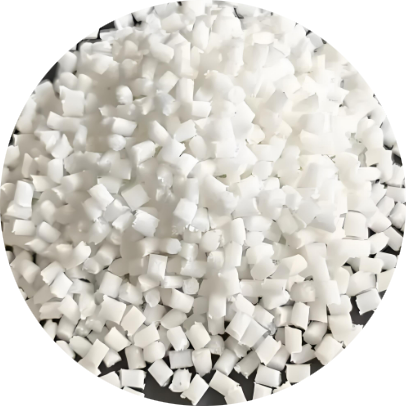Time to read: 6 min

In the quest for materials with exceptional mechanical properties and chemical resistance, Acetal and Delrin stand out. This article delves into the nuances of these two polymers, offering insights into their composition, properties, and ideal applications to guide your material selection for precision engineering projects.
Introduction to Acetal and Delrin
Acetal and Delrin, both types of Polyoxymethylene (POM), are favored for their low friction coefficient, tensile strength, and rigidity. Understanding their differences is essential for selecting the appropriate material for specific applications.
Properties of Acetal
Acetal, available as a copolymer (POM-C) and homopolymer (POM-H), exhibits properties such as recyclability, heat resistance, electrical resistivity, and low water absorption. It is a metal-like plastic known for its high strength and rigidity.
Types of Acetal
- Copolymer Acetal (POM-C): Features excellent dimensional stability and chemical resistance, making it ideal for injection molding and extrusion.
- Homopolymer Acetal (POM-H): Represented by trade names like Delrin®, it maintains uniform CH2O units and is discussed in detail below.
Overview of Delrin
Delrin, a homopolymer acetal, is produced by DuPont. It is known for its tensile strength, making it a common choice in plastic machining and injection molding due to its high flow rates and other beneficial properties.
Properties of Delrin
Delrin boasts a low-density center, chemical resistance, high stiffness, tensile and impact strength, and high creep resistance. It is also recyclable and has high electrical resistivity.
Grades of Delrin
Delrin is available in various grades, each with unique properties and applications:
- Delrin 150: Known for its exceptional strength and rigidity, with resistance to warpage at high temperatures.
- Delrin AF 100 (13% PTFE Filled): Enhanced durability and wear resistance due to the addition of PTFE.
- Delrin (30% Glass Filled): Offers increased impact resistance, suitable for parts subjected to constant stress.
Differences Between Acetal Copolymer and Delrin
- Composition: Delrin's homopolymer structure differs from the copolymer structure of acetal, affecting their crystalline nature and properties.
- Hardness: Delrin has a slightly higher hardness, providing better resistance to impacts and abrasion.
- Chemical Resistance: Acetal copolymers are more resistant to hot water and strong caustic solutions.
- Temperature Tolerance: Delrin has a higher temperature tolerance, making it suitable for a broader range of applications.
- Strength: Delrin has higher flexural yield and tensile strength, making it ideal for structural applications.
- Porosity: Delrin's porous center allows for the containment of small bubbles or voids, unlike copolymers.
Application Considerations
Both materials are suitable for a wide range of applications, including automotive, construction, consumer goods, electrical, food processing, and packaging industries. The choice between acetal and Delrin should be guided by the specific requirements of the application, such as load bearing, friction, dimensional stability, chemical resistance, and temperature tolerance.
Cost Comparison
Acetal materials are generally more affordable, with copolymers costing within a range that is more budget-friendly than Delrin. Delrin's higher cost is attributed to its branding and superior mechanical properties.
Conclusion
Acetal and Delrin, while similar in many ways, offer distinct advantages for different applications. By considering factors such as composition, hardness, chemical resistance, temperature tolerance, and strength, you can make an informed decision on which material is best suited for your project. For projects requiring high tensile strength and rigidity, Delrin may be the preferred choice. Conversely, for applications demanding chemical resistance and dimensional stability, acetal copolymers may be more appropriate.
FAQs (Rewritten)
- What are the key differences between Acetal and Delrin? The key differences lie in their composition, hardness, chemical resistance, temperature tolerance, and strength.
- Which material is more suitable for heavy loads and structural applications? Delrin, due to its higher tensile and yield strength, is more suitable for heavy loads and structural applications.
- Are Acetal and Delrin resistant to chemicals? Acetal copolymers offer better resistance to hot water and strong caustic solutions, while Delrin is also chemically resistant but to a lesser extent.




